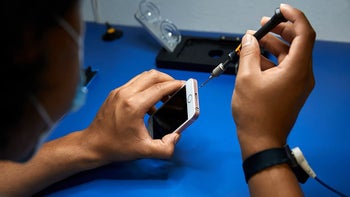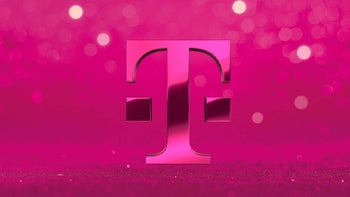DoJ sentences Chinese nationals in an iPhone repair scam to prison and double damages

A 32-year old Chinese national, Haiteng Wu, has been sentenced to 26 months of prison time by the Department of Justice for running just the next installment of a fraudulent iPhone repair scheme that bilked Apple out of a cool million for the three-year duration of the scam. Not only that, but he and his co-conspirators were sentenced to pay close to $2 million in damages.
Counterfeit goods are a big problem for any established brand, but when Apple is involved, you know that there will be both demand and supply through the roof given the iPhone role as a status symbol, especially in Asia where most of the fake goods originate from.
After coming from China to study in 2013 and completing his Engineering Master’s Degree in 2015, Haiteng Wu got a real job in the United States and this is when his three-and-a-half-years-long quest to scam Apple's repair service started before it finished with an arrest in December 2019.
Wu had co-conspirators who sent him bulk shipments of counterfeit Apple handsets from Hong Kong. The iPhones has spoofed IMEI serial numbers that authenticated them as regular iPhones that are still in warranty. He was then sending those to Apple repair shops as "iPhone won't power on" cases, both online and in stores. Apple "repaired" the fake iPhones (most likely just swapped them for refurbished ones) and returned real iPhone replacements for the perpetrator to send back for selling overseas, including back in Hong Kong.
At one point, however, someone started getting suspicious as this is not the first such case with engineering students from China, and got an alert that something was amiss on a grand scale. It's not clear if the alert came within Apple's vast fraud department, or from the port authorities that have been investigating suspicious bulk iPhone shipments from China but in any case, the scheme started falling apart for the Chinese national on an engineering student visa.
Apple usually then sends cease-and-desist orders to stop the scheme and when the fake iPhones keep coming it turns to law enforcement authorities. In this case, the scam has been tasked to the U.S. Department of Homeland Security, Homeland Security Investigations, and the U.S. Postal Inspection Service, too.
Wu's co-conspirators included his wife, Jiahong Cai, as well as Teang Liu, who helped him with both the fake and authentic iPhone shipments, as well as with the payments scheme. With the nearly $1 million that he now has to return to Apple, Wu bought condos in McLean and Arlington, Virginia, of which the Arlington one was purchased in an all-cash transaction. Judge Emmet G. Sullivan sentenced Wu to the 26 months he had already served in custody since December 2019 when Wu, Cai, and Liu were arrested, so he is to be released immediately. Wu has to pay double the $987,000 amount he owes Apple in restitution and forfeiture money sentencing, including by selling the condos.
"Wu also procured fake identification documents, used aliases, opened multiple commercial mail receiving agency mailboxes, and arranged for members of the conspiracy to travel throughout the United States," says the DoJ press release, and the Chinese national pleaded guilty to all that in May 2020 as well as an intention "to defraud the company out of even more money." His wife Cai has been sentenced to the five months of jail time she had already served after she pleaded guilty in her turn in May 2020 as well, for "one count of conspiracy to commit mail fraud." The third co-conspirator Liu is an Arlington resident and his sentence is expected to be served on March 10, 2022, after he pleaded guilty as far back as last February.
The double damages awarded to Apple as well as the prison time that the Chinese nationals served may now set a precedent for such iPhone repair scams sentencing in the future. In some previous such cases, the defendants' lawyers argued that their clients did not know that the iPhones sent to him from China were counterfeit, and thought they were simply taking a cut for a service but this defense may not fly in the future.










Things that are NOT allowed: